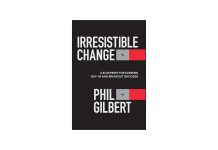
Sobriety is not just a phase; it’s a lifestyle change. Though events such as Dry January have seen spikes of over 200 percent this year, there has been a wider societal push toward alcohol-free living, or at least dialing alcohol consumption back. It’s certainly more common to find mocktails on the menu now than it was even two years ago.
As people explore other avenues for socialization and bonding that don’t involve alcohol, a burgeoning industry of wine-less wind-downs has emerged. However, many offices and employers still only offer things like happy hours and other alcohol-related socialization events to their employees. As sobriety and abstinence become more common in people’s social lives, should employers adapt and offer opportunities for bonding and engagement without bringing out a bottle?
The Challenge
Wellness is at the forefront of many people’s minds after a global pandemic. Zoom, work-from-home days, and remote job opportunities have taught us to prioritize flexibility, fluidity, and the ability to balance our lives with work. Hybrid schedules allow people to limit their commute time, care for their families, and include wellness in their holistic decision-making. Collaboration and support have become significantly more important in the workplace in the last few years, and we’re seeing that in how people approach their relationships with coworkers.
Decreasing alcohol consumption is a natural extension of our desire to cut back on harmful behaviors. However, this leaves employers in a lurch. Other than happy hour, what is there to do? It seems easy to pick a bar and gather people, but many employers have realized this approach may neglect and exclude a large part of their employee demographic.
While networking, building camaraderie, and mingling have always included alcohol, this “easy solution” doesn’t take into account those who are struggling with addiction. Simply grabbing drinks after a long day is neither an inclusive nor considerate solution to maintain a healthy working environment where all are welcome.
Additionally, even after trends such as Dry January, many people fundamentally change their approach to drinking and incorporate new non-alcoholic drinks and activities into their everyday lives, regardless of addiction. As a result, many employers have struggled to incorporate sober-friendly activities and drinks into group bonding events. How can employers extend support to both those struggling with alcohol dependency and those wanting to have new, rewarding experiences with work colleagues?
The Solution
Sober activities create spaces that foster a sense of belonging and well-being. Employers don’t need to throw all happy hours out of the window, but sober social events provide unique activities to employees and encourage more diverse ways to bond with coworkers. Employees are more likely to make connections, engage in meaningful conversations, and enhance collaboration in the long run at an event or workshop.
Offering alcohol-free gathering opportunities also alleviates any tension people struggling with addiction may feel at having to attend triggering bar gatherings or free-flowing events. It also allows them to participate in office culture without having to limit their interactions if they don’t feel they can handle an alcohol-filled evening with coworkers. All employees will have an equal opportunity to develop socially within the company.
The opportunity to participate in wellness in fellowship and community represents acceptance and growth. People will feel better, look better, and do things that align with their goals better.
Does Sober Event Planning Work?
Companies that have embraced a less alcohol-dependent bonding paradigm have found that planning events allows for more opportunities for personal and collaborative growth. When alcohol is removed from the equation, team-building activities are more substantial.
While most people don’t drink with coworkers during the day, sober events are perfect for any time! Something as simple as planning an escape room excursion, volunteering at a local pet shelter, organizing a team wellbeing workshop, or indulging in must-try restaurants during lunch can provide ample opportunities for employees to create lasting bonds and try new things.
Ultimately, sober events allow companies to showcase their care and attention to those struggling with addiction while diversifying the activities employees can do within their company.
Sobriety is a trend that will only keep growing. As drinking trends shift and abstinence becomes more common, employers must provide activities and opportunities that function in tandem with employees’ lifestyles. Prioritizing workers’ needs enhances productivity, encourages personal and professional growth, and shows employees that the company values them, resulting in the longevity of clients and employees in the long run.



